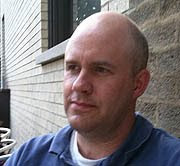Google posts some great instructional tools on its YouTube channel. I use this simple training video to help students better understand the different ways they can use Google search.
The first few tips are fairly basic, but later it shows how to use a timeline search for a research paper on green energy. It points out some great alternative techniques for expediting a general search. It's worth watching for a couple of minutes.
Newspapers can be jerks
4 days ago







